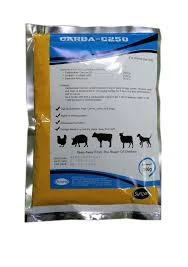- Afrikaans
- Albanian
- Amharic
- Arabic
- Armenian
- Azerbaijani
- Basque
- Belarusian
- Bengali
- Bosnian
- Bulgarian
- Catalan
- Cebuano
- Corsican
- Croatian
- Czech
- Danish
- Dutch
- English
- Esperanto
- Estonian
- Finnish
- French
- Frisian
- Galician
- Georgian
- German
- Greek
- Gujarati
- Haitian Creole
- hausa
- hawaiian
- Hebrew
- Hindi
- Miao
- Hungarian
- Icelandic
- igbo
- Indonesian
- irish
- Italian
- Japanese
- Javanese
- Kannada
- kazakh
- Khmer
- Rwandese
- Korean
- Kurdish
- Kyrgyz
- Lao
- Latin
- Latvian
- Lithuanian
- Luxembourgish
- Macedonian
- Malgashi
- Malay
- Malayalam
- Maltese
- Maori
- Marathi
- Mongolian
- Myanmar
- Nepali
- Norwegian
- Norwegian
- Occitan
- Pashto
- Persian
- Polish
- Portuguese
- Punjabi
- Romanian
- Russian
- Samoan
- Scottish Gaelic
- Serbian
- Sesotho
- Shona
- Sindhi
- Sinhala
- Slovak
- Slovenian
- Somali
- Spanish
- Sundanese
- Swahili
- Swedish
- Tagalog
- Tajik
- Tamil
- Tatar
- Telugu
- Thai
- Turkish
- Turkmen
- Ukrainian
- Urdu
- Uighur
- Uzbek
- Vietnamese
- Welsh
- Bantu
- Yiddish
- Yoruba
- Zulu
Noy . 05, 2024 15:41 Back to list
levamisole hydrochloride oxyclozanide
Exploring Levamisole Hydrochloride and Oxyclozanide A Therapeutic Duo
Levamisole hydrochloride and oxyclozanide represent an important combination in the realm of veterinary and medicinal chemistry, especially in the treatment of parasitic infections in livestock. This article explores the properties, uses, and significance of these compounds, shedding light on their therapeutic applications and mechanisms of action.
Levamisole Hydrochloride An Overview
Levamisole hydrochloride is an anthelmintic drug, primarily used to treat nematode infections in various livestock species. Initially developed as an immunomodulator for cancer therapy in humans, it has found considerable utility in veterinary medicine due to its efficacy in treating gastrointestinal parasites. The drug is a member of the imidazothiazole class, functioning primarily by acting on the neuromuscular system of parasites, leading to paralysis and subsequent expulsion from the host organism.
In addition to its antiparasitic properties, levamisole has been noted for its ability to enhance the immune response in animals, making it a beneficial addition to treatment regimens in cases of concurrent infections. Its broad-spectrum activity covers a range of nematodes, including species affecting sheep, cattle, and dogs, which is vital for maintaining animal health and productivity.
Oxyclozanide An Effective Agent Against Trematodes
Oxyclozanide, on the other hand, is particularly effective against trematodes, commonly known as flukes. This compound is typically used in veterinary practices as an anthelmintic and is prominent in the treatment of liver fluke infestations in cattle and sheep. Like levamisole, oxyclozanide operates by disrupting the metabolism of the parasites, leading to their incapacitation.
levamisole hydrochloride oxyclozanide

Oxyclozanide is characterized by its safety profile and effectiveness, making it a preferred choice among veterinarians for the treatment of parasitic infections without significant adverse effects. The use of oxyclozanide is crucial not only for animal welfare but also for the economic viability of farming operations, as flukes can cause severe health issues leading to diminished productivity and increased veterinary costs.
Synergistic Effects and Combinatorial Therapy
The combination of levamisole hydrochloride and oxyclozanide offers synergistic effects that enhance the overall efficacy of parasite management strategies. By targeting different classes of parasites—nematodes and trematodes—this therapeutic duo provides a comprehensive approach to parasitic infections. The concurrent use of these agents may lead to improved outcomes, including faster resolution of infections, reduced fecal egg counts, and lower reinfection rates.
Moreover, this combination therapy can help practitioners develop more tailored treatment protocols for their patients, responding to the specific parasitic challenges faced within their practice areas. The use of such combinatorial strategies is particularly relevant in the context of increasing resistance to multiple anthelmintic treatments, an issue impacting the effectiveness of traditional approaches.
Conclusion Significance in Veterinary Medicine
In summary, levamisole hydrochloride and oxyclozanide are significant therapeutic agents in the battle against parasitic infections in livestock. Their unique properties and actions not only contribute to the health and productivity of animals but also play a critical role in sustainable agricultural practices. The safety, efficacy, and synergistic potential of their combination position them as invaluable tools for veterinarians aiming to provide optimal care for their patients.
As the agricultural landscape continues to evolve, ongoing research into the pharmacology, efficacy, and resistance patterns associated with these agents will be essential. This will ensure that livestock producers can rely on effective strategies to maintain the health of their animals, ultimately supporting the food supply chain that is vital for global sustenance.
-
Guide to Oxytetracycline Injection
NewsMar.27,2025
-
Guide to Colistin Sulphate
NewsMar.27,2025
-
Gentamicin Sulfate: Uses, Price, And Key Information
NewsMar.27,2025
-
Enrofloxacin Injection: Uses, Price, And Supplier Information
NewsMar.27,2025
-
Dexamethasone Sodium Phosphate Injection: Uses, Price, And Key Information
NewsMar.27,2025
-
Albendazole Tablet: Uses, Dosage, Cost, And Key Information
NewsMar.27,2025













